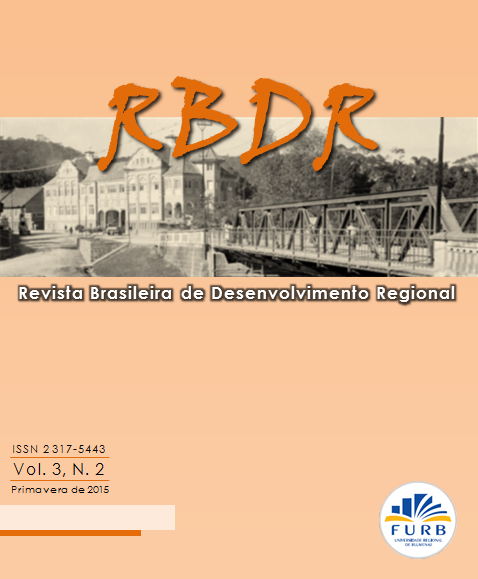The emergence of “new towns†as denial of the city: closed condominiums in Goiânia, Brazil
DOI:
https://doi.org/10.7867/2317-5443.2015v3n2p161-177Keywords:
Goiânia, horizontal closed condominiums, housing, housing complex, social inequalities.Abstract
As part of a new landscape related to power and wealth has been taking place in the metro area of Goiânia, after the 1990’s and specially 2000. It is important to notice the urban phenomena of the private horizontal neighborhoods (CHF’s) that are becoming a rising trend among the wealthy segments of the population, which tend to seek for residences and commercial areas in elite neighborhoods, socially isolated, settled in the outskirts of the city. Even though, Goiânia has characteristics of a mid-size city, it has been already considered the “3rd capital of the country in number of private neighborhoods of this kind in relation to the number of habitantsâ€. Aside of this luxury phenomenon, which is transforming deeply the urban landscape of Goiânia, sits without any solution the demands for popular housing. The city still dealing with extremely poor neighborhoods with high levels of insalubrity, marked by irregular occupation processes and occasional invasions, all of which are urban questions that have been addressed by the government only with sparse actions.
JEL-Code | O18; R14; R52.
Downloads
Downloads
Published
How to Cite
Issue
Section
License
Os direitos autorais para textos publicados na Revista Brasileira de Desenvolvimento Regional são do(a) autor(a) e co-autor(a/es), com direitos de primeira publicação para a revista. Por aparecerem neste periódico de acesso público, os textos são de uso gratuito, com atribuições próprias, em aplicações educacionais e não-comerciais. A RBDR permitirá o uso dos textos publicados para fins não-comerciais, incluindo o direito de envio para bases de dados de acesso público. Os textos publicados são de integral e exclusiva responsabilidade do(a) autor(a) e co-autor(a/es).
• O(a) autor(a) e co-autor(a/es) autoriza(m) a publicação do texto na revista;
• O(a) autor(a) e co-autor(a/es) garante(m) que a contribuição é original e inédita, e que ela não se encontra em avaliação em outra(s) revista(s);
• A revista não se responsabiliza pelas opiniões, ideias e conceitos emitidos nos textos, por serem de inteira responsabilidade do(a) autor(a) e co-autor(a/es);
• É reservado aos editores o direito de promover ajustes textuais e de adequação do texto às normas de publicação;
• O(a) autor(a) e co-autor(a/es) declaram que o texto não é objeto de quaisquer conflitos de interesse.





